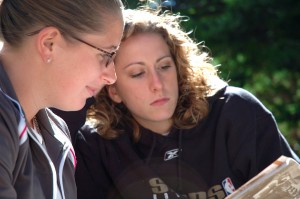 Preparing your child for college demands a lot from a parent – there’s so much to think about and always a concern that your child may not cope well with a new environment. If that child happens to have a sleep disorder of some kind, parents can become even more anxious worrying that they will not settle well and that their disorder may be exacerbated as a result. Here are a few tips to help you prepare your child to adjust to college life, and learn to cope with their sleeping disorder without mom or pop.
Preparing your child for college demands a lot from a parent – there’s so much to think about and always a concern that your child may not cope well with a new environment. If that child happens to have a sleep disorder of some kind, parents can become even more anxious worrying that they will not settle well and that their disorder may be exacerbated as a result. Here are a few tips to help you prepare your child to adjust to college life, and learn to cope with their sleeping disorder without mom or pop.
Some types of sleep disorders
Quality sleep is needed for good health and it can affect mood, hormone levels and weight. Sleep problems therefore impact on the same areas as well as causing tiredness and poor concentration. Common disorders include sleep apnea, sleep deprivation, insomnia, restless legs syndrome and snoring.
Children and adolescents require a minimum of nine hours of sleep per night. This means that sleep problems and a lack of sleep can have negative effects on your child’s performance at college, including during extracurricular activities and on their social relationships. While snoring does not seem like a serious problem, except perhaps for a sleep partner, habitual snoring does in fact have an adverse effect on the quality of sleep of the person who snores. Nightmares, night terrors and sleepwalking are among many disruptive disorders known as parasomnias. When sleep apnea is a problem, the child’s breathing becomes disrupted regularly during sleep and they may experience restless nights, fatigue during the day and poor concentration, which of course makes it difficult for them to study effectively.
